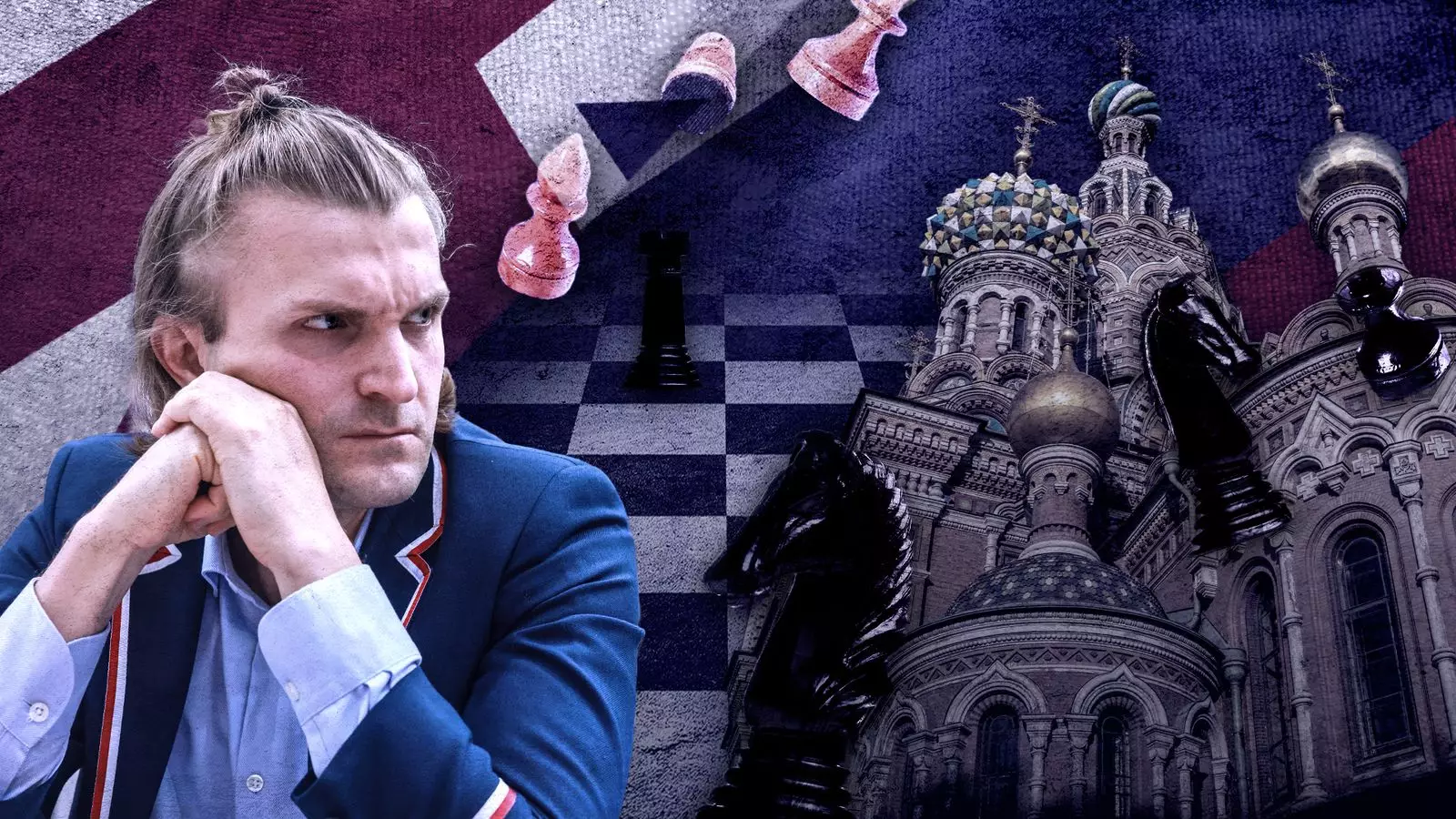For Nikita Vitiugov, the chess grandmaster who has made a notable transition from representing Russia to playing for England, the city of London has become a refuge. With its overcast skies and intermittent rain, the British capital may echo the weather of his native St. Petersburg, providing a semblance of comfort amid his significant life changes. But it’s not the weather that makes him feel at home; it’s the freedom he has found to express his beliefs and live authentically.
Nikita’s decision to leave Russia began not out of a longing for a new city but out of necessity, driven by his stance on the Russia-Ukraine conflict. Unlike many who remain silent amid geopolitical tensions, Nikita spoke out against the war, a choice that put him at great personal risk in a country notorious for its intolerance towards dissent. His vocal opposition has led him to become one of the most recognized chess players to publicly shift allegiance to another nation.
Chess in a Time of Conflict
The world of chess, though it may seem detached from political strife, has not been immune to the repercussions of the ongoing war in Ukraine. Historically perceived as a battleground for intellectual rivalry during the Cold War, chess has morphed into a platform where players now stand for principles. The full-scale invasion of Ukraine in February 2022 was a pivotal moment, igniting a wave of protests from international players against the Russian regime.
It is within this context that Vitiugov’s defection to play for England stands out. Surrounded by chess legends, he expertly navigates the complicated identity of a chess master who must now consider his nation of representation amidst the backdrop of global conflict. The Russian Chess Federation has been sanctioned, further isolating players who choose to voice their dissent from within the country.
From Champion to Exile
As he reflects on leaving behind a promising career in Russia, Vitiugov describes the emotional turmoil akin to a divorce. The reigning Russian chess champion could easily have continued to compete, yet he understood that remaining silent was not an option. The personal stakes were high: in standing up for his beliefs, he effectively severed ties with what had once been his source of pride. Living in Spain at the onset of the invasion, he recognized that he could no longer represent a nation that had taken a perilous and aggressive turn.
Nikita was compelled to make a public declaration against the war, emphasizing the kinship between Russians and Ukrainians. The response in his homeland was swift and hostile, marking his shift from a beloved national figure to a controversial persona with his decision to adopt the St George’s Cross and play for England.
Settling in north London with his wife and their young son, Vitiugov’s life has taken on a sense of normalcy that was elusive back in Russia. The support from the English Chess Federation allowed him to lay down roots, as both he and his family secured UK residency. In the U.K., he has found the freedom necessary to articulate his perspectives without the looming threat of government retribution. This newfound liberty has already shaped his aspirations for his family and his budding career as a chess player.
Now, as he prepares to compete in the London Chess Classic, he sees it not merely as an opportunity to engage with the elite of the chess world but also as a chance to establish himself once again among top-tier players. The tournament, held at the famed Emirates Stadium, presents an interesting juxtaposition for Vitiugov, a Tottenham Hotspur fan—reminding him that in the world of sports, lines drawn between teams and nations can sometimes blur.
As he ascends to a new stage in his career, Nikita has expressed admiration for legendary figures in chess like Viktor Korchnoi, who like him, was raised in St. Petersburg. Korchnoi’s legacy as an outsized talent who defected from the Soviet Union showcases the profound compromises elite athletes often face when balancing personal conviction against national pride.
With the English chess team now enriched by his talent, the future looks bright for both Vitiugov and the nation he now calls home. His competitive ranking may fluctuate, but his contribution to nurturing future chess talents in England is immeasurable. As he looks forward to upcoming tournaments, including the British championships, the question of whether a former Russian player can become the new champion of English chess lingers in the air, perhaps as a metaphor for the potential convergence of two worlds—one steeped in tradition and the other in progressive ideals.


Leave a Reply